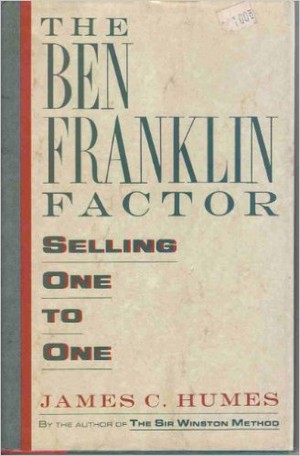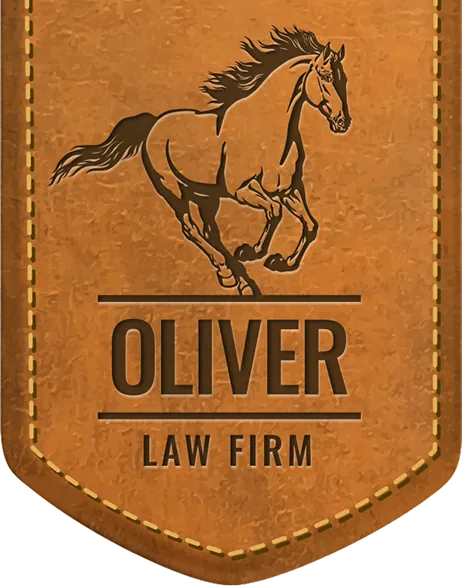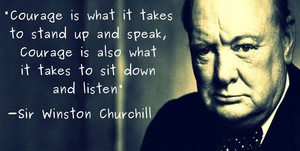
One of the first key points the author tries to make is that you should always strive to be sensitive. This in no way means that you should spill all of your emotions to your clients, but in fact, the exact opposite. Think of what your client talked about the last time they visited you, and then try to ask them follow up questions about it on your next meeting. Hume’s explains that Franklin knew that people like to be treated as interesting subjects, and so a little sensitivity can go a long way.
The second key point of this book is to readily put yourself at the mercy of others. Humes quotes from Franklin’s parody newspaper “Poor Richard”, and states; “He that has done you a kindness will be more ready to do another than he whom yourself have obliged”. Hume’s point in theory is that people are more inclined to help you when they feel that they are in a higher position of power than you are. This is an interesting theory, and Hume’s obviously has a better outlook on human decency than my cynical nature will allow me to believe. However, it is an interesting theory still.
The third key point Humes makes is that the best way to persuade is to listen, and the best way to listen is to ask the right questions. By asking the right questions you show that you were actively paying attention to your speaker, and are concerned by what they are saying. Asking questions also shows that you have an interest in the outcome of your speakers point.
The penultimate point lies in a story that Humes relates about his early legal career. A local farmer notices a cow has gone missing from his field, through which ran the Pennsylvania Railroad. The farmer filed suit against the railroad for the value of his cow. A lawyer from the Railroad company comes down and urges the farmer to settle the case, and they settle the case for half of what the farmer was asking. Afterwards, the lawyer quite proud of himself tells the farmer that he could have never won the case. The engineer was asleep and the fireman was in the caboose when the train went through the farmer’s field that morning. The lawyer had absolutely no witnesses to put on the stand. The farmer, after waiting patiently for the lawyer to finish gloating, then turns to the lawyer and says, “Well I tell you, young feller, I didn’t want that case tried, either. You know, that durned cow came home this morning!”
The moral of the story is that you should always do your homework. I think this is the point that could really help those in our office to perform better in trials, depositions, etc. Being prepared gives you an extra boost to take on anything that might possibly be thrown at you; therefore, nothing should ever take you by surprise. “When you want to be influential, dig up all the information, when you want to be convincing, be conversant with the facts.”
Finally, the fifth major point I found from this book, and the one I feel will affect my life the most, is that to be head strong is to be head wrong. Humes makes that point that new ideas to Franklin were like a new born baby. Perhaps it won’t amount to much, perhaps it will be very brilliant. Only time will tell. I think it’s important that we take every idea and weigh it not for its present value, but what its value could be.
Overall, I must admit, I didn’t particularly care for this book. At times I felt like the admiration of Benjamin Franklin clouded the author’s rendition of the facts at hand. However, if you are a huge history buff, this is definitely the book for you. I definitely learned a lot more about Benjamin Franklin than I did before reading this book, and the tidbits were interesting enough to not be unpleasant.
a Free Consultation



